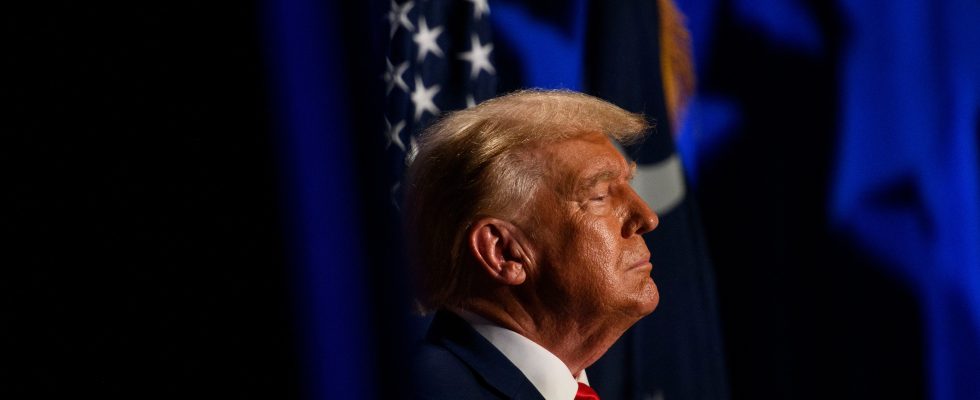It may be Donald Trump’s only “mug shot”, but there will be four criminal cases that will be tried in court. A chronology that will enamel American political life in the coming months and will hit the electoral campaign hard. In the case accusing the former head of state of wanting to reverse the results of the 2020 presidential election, Judge Tanya Chutkan is expected to announce the trial date on Monday August 28. This is the most serious charge of the ex-president, who could be condemned for “conspiracy against the United States”.
The trial period is itself a battle for both sides. Donald Trump’s Lawyers Proposed April 2026, on the pretext that there would be 11.5 million pages of evidence to dissect. A greatly exaggerated number according to the special prosecutor, Jack Smith, who wants a “quick trial”, starting on January 2, 2024 and lasting four to six weeks. If the judge follows the advice of the prosecutor, then the hearings would take place at the same time as the first ballots of the Republican primary. The voters of the “Grand Old Party” of Iowa are called to vote for their candidate on January 15, and those of New Hampshire a few days later. However, these two polls are very important: they often allow a candidate to take off in the polls.
In Georgia, where Donald Trump is also accused of trying to prevent Joe Biden’s victory, the trial date has not yet been set. The prosecutor, Fani Willis, would also like the case to be tried quickly and has suggested a very close deadline: October 23. But that date is unlikely. Several months generally separate the indictment from the trial, especially for a case as complex and heavy with consequences as this one.
Regarding the other two criminal cases against the former real estate magnate, the dates have already been decided. The “Stormy Daniels” case will be judged from March 25. Donald Trump is accused of having falsified financial documents to hide a payment of 130,000 dollars to this porn actress and prevent her from revealing her affair with him in the middle of the 2016 election campaign. When this trial begins, the primary republican will have already made good progress. Six states will have already voted, followed by the crucial SuperTuesday, March 5. Fifteen primaries will be held that day, including those with the most delegates to win, California and Texas. This is often an opportunity for candidates to get ahead, hoping that voters will then vote for the one who is already in the lead.
Two months later, on May 20, a fourth trial should begin, relating to the confidential documents that the ex-president kept after leaving the White House. At that time, the states continue to vote for the Republican nomination. But these polls are rarely contested, because one of the candidates usually has an irrecoverable lead and his rivals withdraw voluntarily or for lack of funding. If Donald Trump is the winner of the most delegates, then he could appear in court in Fort Pierce, Florida, not as a mere suitor, but as the presumptive candidate of his party, supported by his former competitors.
Risk of overlap
The intermingling of the electoral campaign and all these trials feeds the rhetoric of Donald Trump. Since the start of his legal troubles, this one talks about “witch hunt” and political manipulation orchestrated by Joe Biden. The time he will have to spend in court, where his presence is compulsory, also prevents him from campaigning. The risk for the ex-president is that voters see these affairs as a handicap as the election approaches and turn to another candidate, such as Governor Ron DeSantis or entrepreneur Vivek Ramaswamy. His team is therefore trying by all means to have the trials postponed until after the presidential election, set for November 5.
And she could get her way, without having to do anything. The organization of the four trials is a headache for the magistrates, because the hearings will be spread over several weeks, with a lot of evidence to examine and many witnesses to question. Procedural clashes between lawyers and prosecutors could also lead to extensions. This risk of congestion, or even overlap, is very difficult to avoid. No legal authority exists in the United States to set a schedule. Without being officially authorized to do so, it is on the other hand found acceptable that the various judges call each other to reach an agreement.
Another custom limits the time: the tacit rule of “sixty days”. During the two months preceding an election, the judicial system cannot make decisions that could influence the vote for a candidate. No trial can therefore be held after September 5. If Donald Trump is officially nominated as a candidate, he can then finally leave the court for the meeting room.
